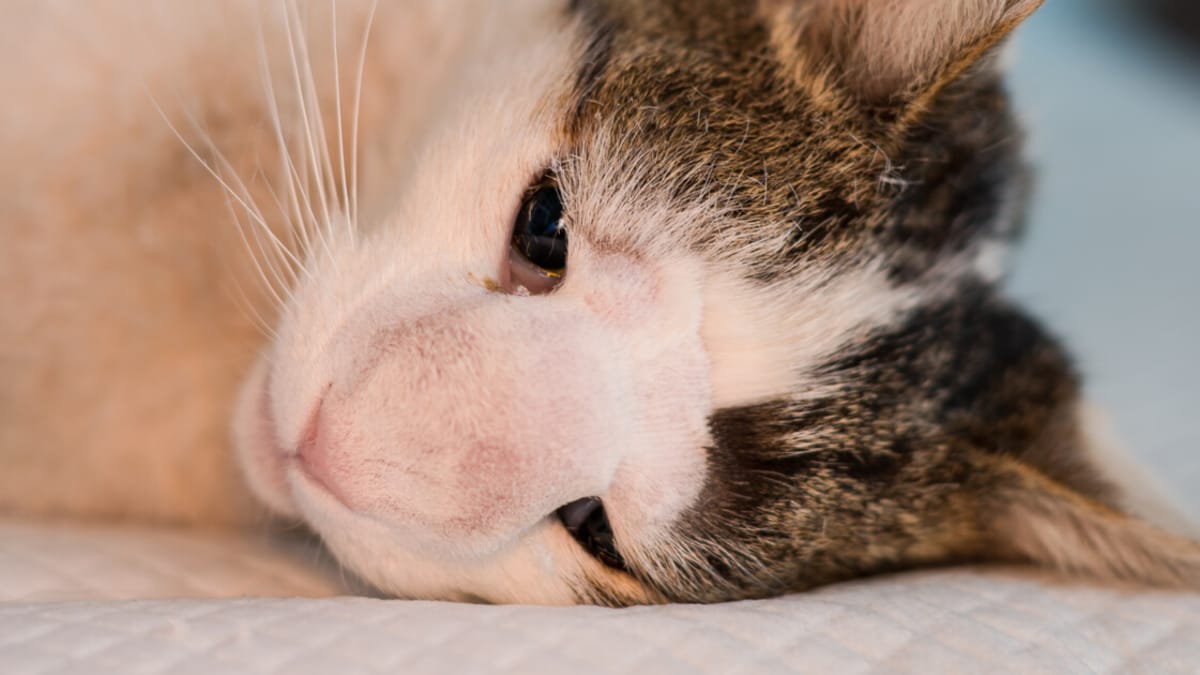Neoplastic diseases, commonly known as tumors, are what frightens and anguish us most, even when it comes to our 4-legged friends.
Il cat lymphoma it can present itself in different forms and have a multifactorial etiology that determines the expression of symptoms in felines that are also very different from each other. Therefore it is important to understand what you are talking about and to contact veterinarians specialized in oncology. Here are some tips on how to best cope with the onset of this serious disease.
What is cat lymphoma?
Lymphoma is a cancer that affects a type of cell called lymphoid cells. Tumors are characterized by uncontrollable and pathological cell division. These cells are found in many organs and tissues of the body: the lymph nodes, spleen, liver, bone marrow, kidneys, skin, lungs, and nervous system. Lymphoma is a particularly common cancer in cats.
Cat lymphoma is the most commonly diagnosed type of cancer in our domestic felines.
Mediastinal, gastrointestinal and multicentric lymphomas
There is not just one type of lymphoma, but several, which differ from each other depending on the organ affected.
- mediastinal lymphoma: affects the lymph nodes between the lungs, near the heart. This is the most common form.
- Gastrointestinal lymphoma: located in the digestive tract in the abdomen. This is the second most common form.
- The other forms of lymphoma they are less common and can affect the kidneys or spine.
There are also peripheral or multicentric lymphomas that affect multiple organs and tissue types at the same time.
Causes of cat lymphoma
Malignant tumors and cancer are often difficult diseases not only for our four-legged friends, but also for us owners. Such diseases are referred to as multifactorialthat is, it is not possible to identify a single cause, but there are numerous factors that play an important role in this pathology.
A tumor, and therefore also a lymphoma, is not contagious, yet one of the most common causes capable of triggering this pathology is an infection carried by the feline leukemia virus – FeLV. This virus can also lead to the development of tumors.
It can also, in less common cases, be due to a feline immunodeficiency virus – FIV infection.
How does lymphoma manifest in cats?
Unfortunately, the symptoms of lymphoma are highly variable. It can therefore be difficult for a veterinarian to diagnose this type of cancer.
I symptoms most common are:
Warning, these are just a few examples of symptoms. Only a veterinarian can make a diagnosis after a detailed evaluation of the clinical case and following in-depth tests and examinations.
Lymphoma: life expectancy in cats
When symptoms of lymphoma appear, the cancer is often very advanced and the prognosis unfortunately it is unfavorable, so the life expectancy of the cat with lymphoma is significantly reduced.
Unfortunately, if left untreated, it could be a matter of days or weeks before death occurs. In the event that the stage of progression of the disease is already advanced, euthanasia of the cat can be considered.
What tests can be done to diagnose cat lymphoma?
Depending on your cat’s symptoms and clinical exam, your vet may suggest further tests that will allow them to proceed with the correct diagnosis. Here are the most useful:
- Tests to diagnose FelV and FIV
- Blood analysis
- Medical imaging studies: X-rays, ultrasound.
A reliable diagnosis can only be made after the histological samples have been analyzed in a specialized laboratory where the presence of cancer cells is ascertained.
Therapy or euthanasia in cats with lymphoma?
Il cancer treatment it must be based on a well-considered decision. Diagnosis and prognosis on the further development of the disease are always a shock to the owners. But in times like these you have to try to be clear-headed in order to make the best possible decision for our feline friend.
In order to do this it is necessary to evaluate (and have evaluated) in detail every clinical aspect of the cat. Therefore, at this stage, do not hesitate to ask the vet all the questions that come to your mind and that will serve to dispel any possible doubts. Sometimes it is advisable to ask too a second opinionpossibly by a veterinarian who specializes in neoplastic diseases.
Can cat lymphoma be cured?
The success of the therapeutic treatment of lymphoma depends on the following factors:
- The place where it developed;
- The stage of development;
- The age of the cat;
- The general health of the cat at the time of diagnosis.
There are several methods of treatment: cat surgery, radiotherapy, immunotherapy or chemotherapy. The veterinarian will be able to suggest, depending on the patient’s condition, what might be the most suitable therapy and, above all, evaluate which of them might not be right for you and may even be discouraged.
Sometimes it happens that illnesses come suddenly, leaving us blown away by the hypothesis of having to say goodbye to our partner. We certainly can’t know what his life will bring, but what must be remembered is that timing can make a difference in some cases: don’t forget to subject your pets to periodic routine checks!

